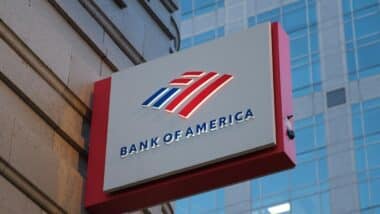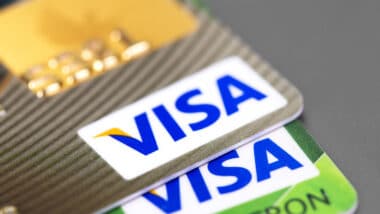
Update:
- On May 10, a federal judge in Texas stayed an $8 credit card late fee standard the Consumer Financial Protection Bureau (CFPB) enacted.
- The rule, which the CFPB finalized in March and was set to take effect May 14, reduced the typical credit card late fee amount from $32 to $8.
- U.S. District Judge Mark Pittman issued the stay in response to the U.S. Chamber of Commerce and other industry groups challenging the rule via a request for a preliminary injunction. They argue the rule is flawed, unlawful and an overreach.
- The CFPB says the rule will save 45 million people an average of $220 per year and prevents large credit card companies from exploiting a rule that allows them to charge excessive late fees.
Credit card late fees overview:
- Who: The Consumer Financial Protection Bureau (CFPB) finalized a rule cutting credit card late fees.
- Why: The CFPB says companies exploit a regulatory loophole to charge customers more than $14 billion in late fees annually.
- Where: The CFPB rule affects consumers nationwide.
(March 11, 2024)
The Consumer Financial Protection Bureau (CFPB) finalized a rule cutting credit card late fees by more than $10 billion annually.
Large credit card companies exploit a rule allowing them to charge excessive late fees that cost families more than $14 billion per year, the CFPB says in a press release.
The rule will slash typical fees from $32 to $8, saving 45 million people an average $220 per year, according to the CFPB.
“For over a decade, credit card giants have been exploiting a loophole to harvest billions of dollars in junk fees from American consumers,” CFPB Director Rohit Chopra says in the press release. “Today’s rule ends the era of big credit card companies hiding behind the excuse of inflation when they hike fees on borrowers and boost their own bottom lines.”
The CFPB introduced the rule in February.
Junk fee immunity provision lowered from $30, $41 to $8
The Credit Card Accountability Responsibility and Disclosure Act of 2009 (CARD Act) caps current late fees, blocks excessive fees and requires clear fee disclosures.
The law received a 2010 immunity provision capping fees at $25 for the first late payment and $35 thereafter, with those totals increasing with inflation, the CFPB says. Those limits have increased to $30 and $41, respectively.
Companies increased fees along with inflationary cap increases annually without proving an increase in costs, CFPB says.
The new rule caps fees at $8 and ends inflation-related increases for companies with 1 million or more accounts, which will cover more than 95% of all outstanding balances in the credit card market.
“CFPB data shows that smaller issuers tend to charge lower rates and fees to their borrowers, while the vast majority of the largest issuers charge close to the maximum allowable late fee amount,” the CFPB writes in the press release.
Have you been charged large late fees? Let us know in the comments.
Don’t Miss Out!
Check out our list of Class Action Lawsuits and Class Action Settlements you may qualify to join!
Read About More Class Action Lawsuits & Class Action Settlements:
- Supreme Court won’t review Visa, Mastercard ATM fee class certification appeal
- AmEx class action claims company prevents merchants from trying to lower swipe fees
- Amazon, Mastercard, banks reach settlement in lawsuit over conduct, fees
- American credit card debt hits record $1.08 trillion, report finds















52 thoughts onJudge blocks new $8 credit card late fee rule
Add me
Please add me
I can definitely relate to the increased late fees. It continues on and adds up, preventing us, credit card holder’s from reaching their financial freedom.
OMG! Add Me
Please add me
Please add me this is outrageous. At one time decade’s ago interest fee’s couldn’t go over a certain amount now its like a free for all with the additional fees and extra charges, they seem to slip then in thinking people don’t pay attention. The problem is everything is online and how many younger people really pay attention to the statements and question the company’s about the fee’s. We do have e a right to appeal but the majority of the time there is not a real person to appeal to. I knew once everything was going online the consumer would get the screw job and good luck finding someone who can help and correct the problem.
Internet has been the biggest mistake ever, we didn’t hear about identity theft thirty years ago. Technology was the way to go, my ass its the way to lie, steal and screw over someone on the other side of the world.
Please add me
Add me